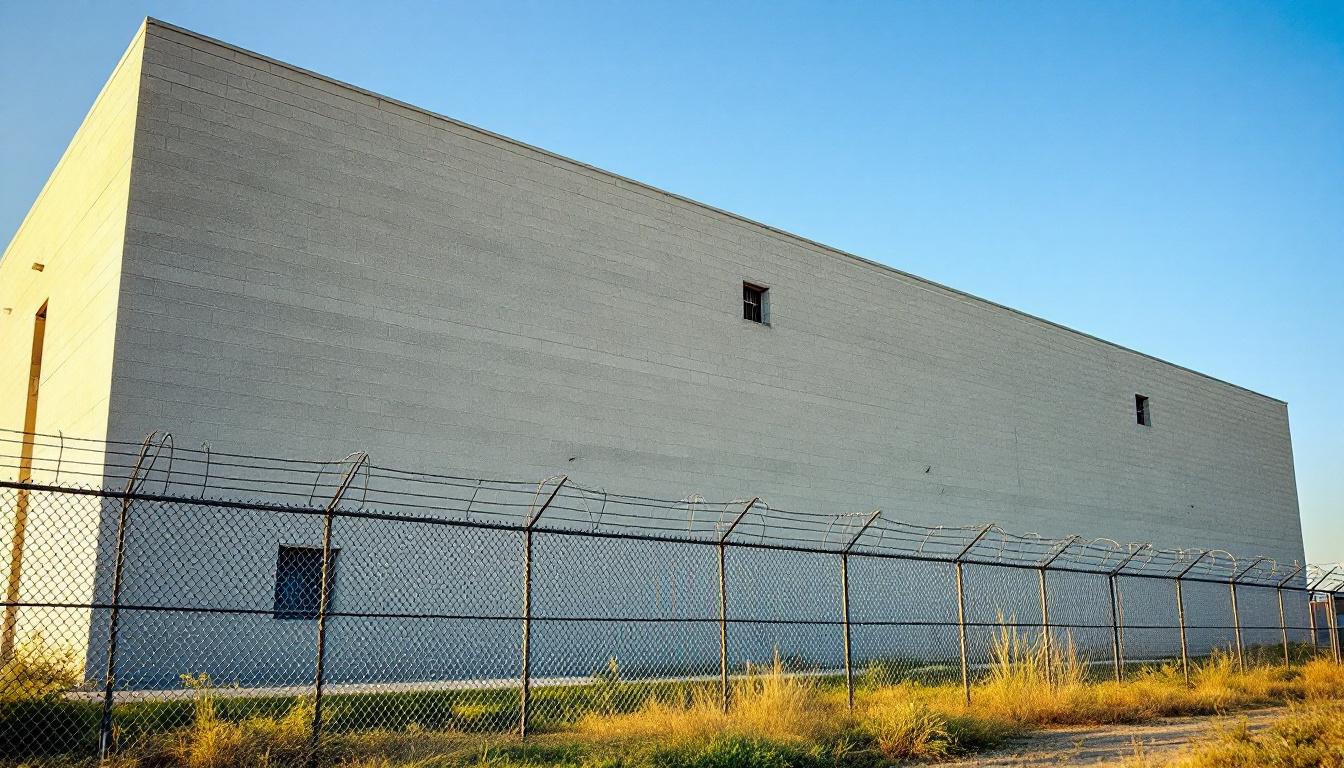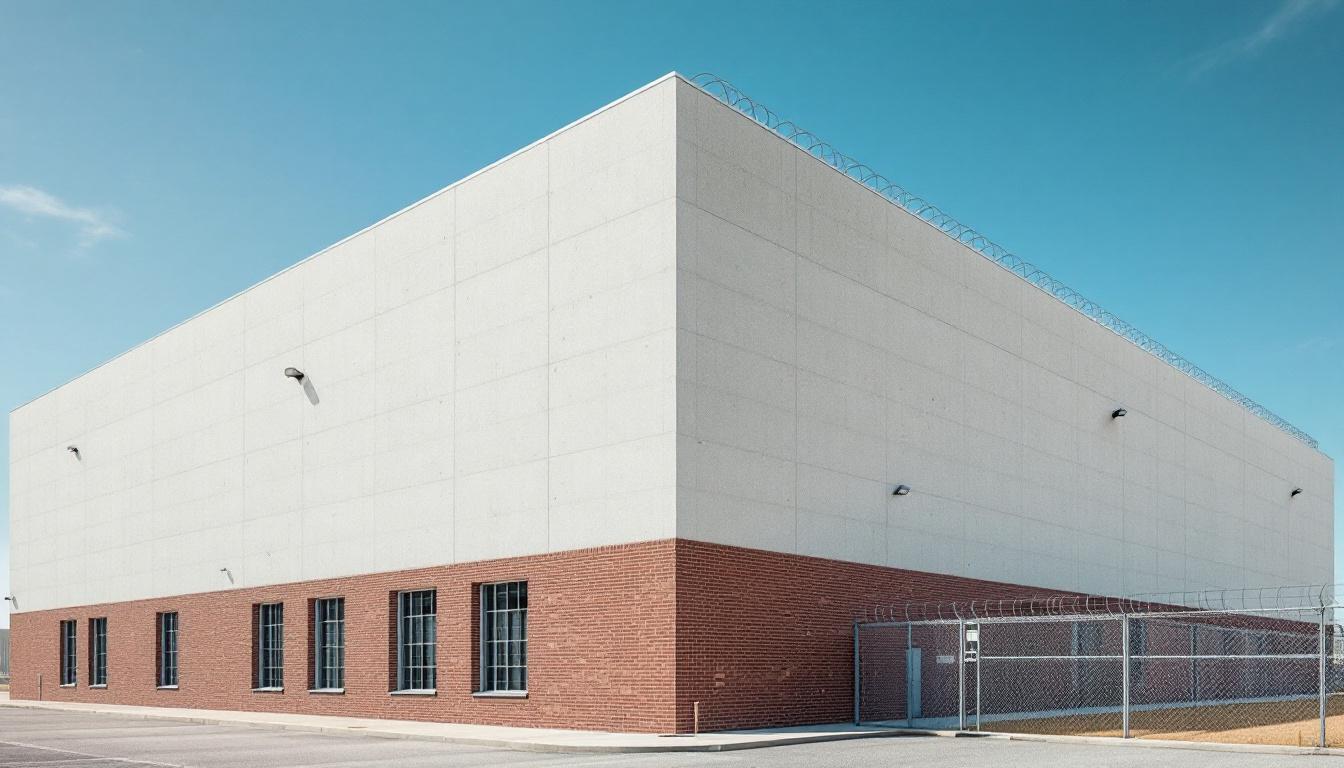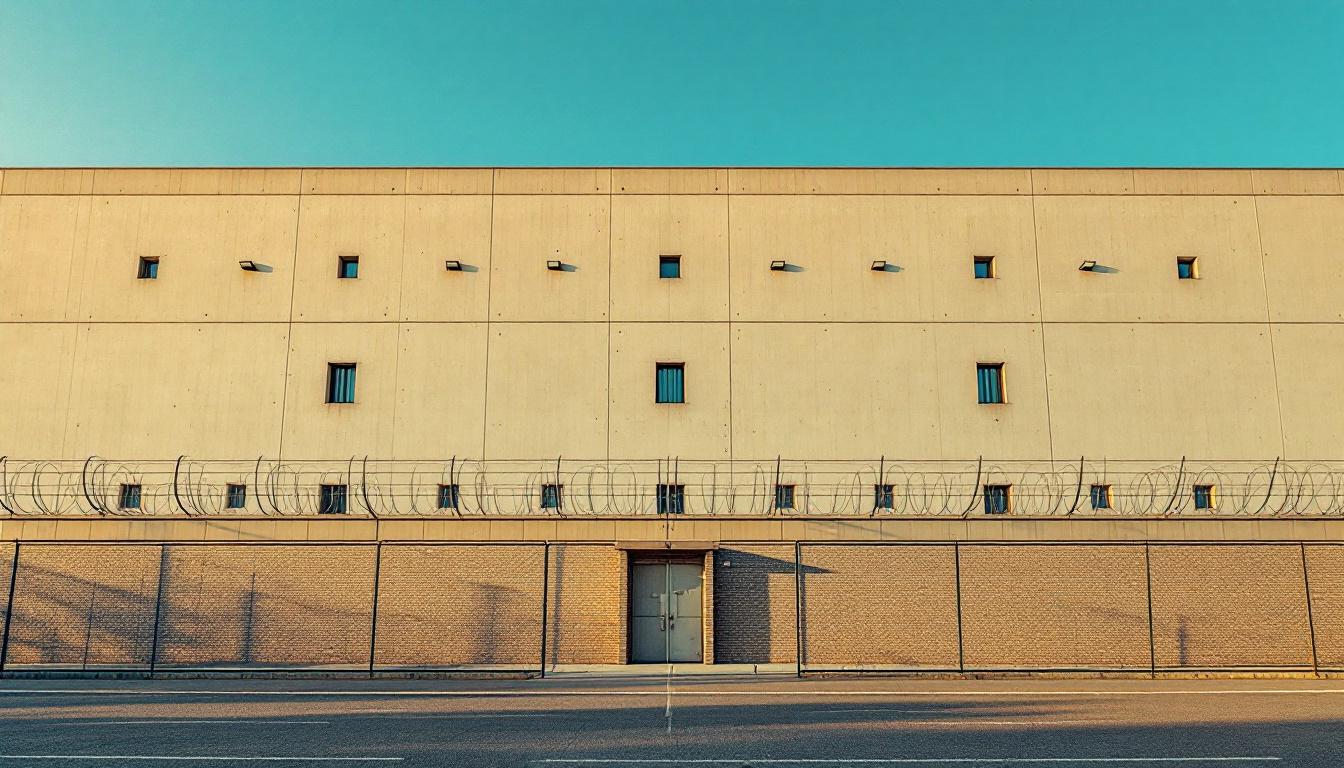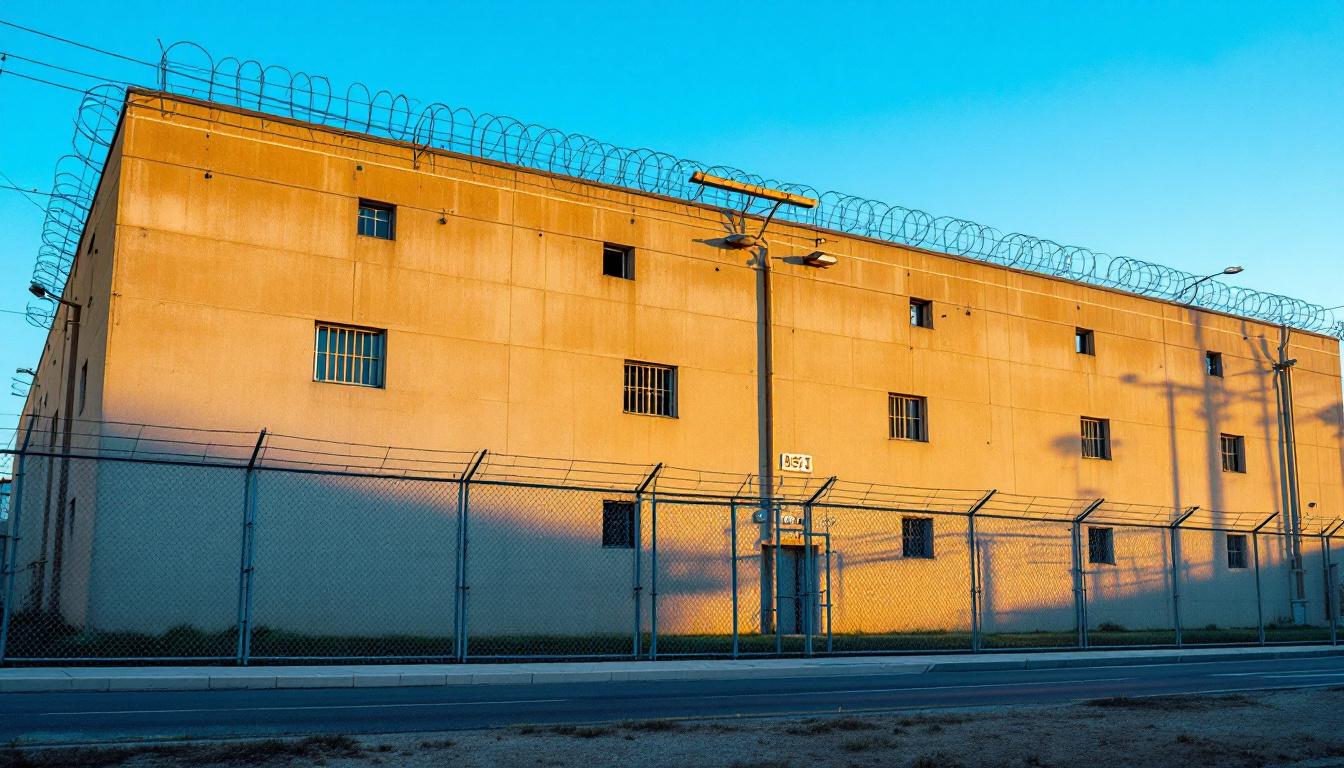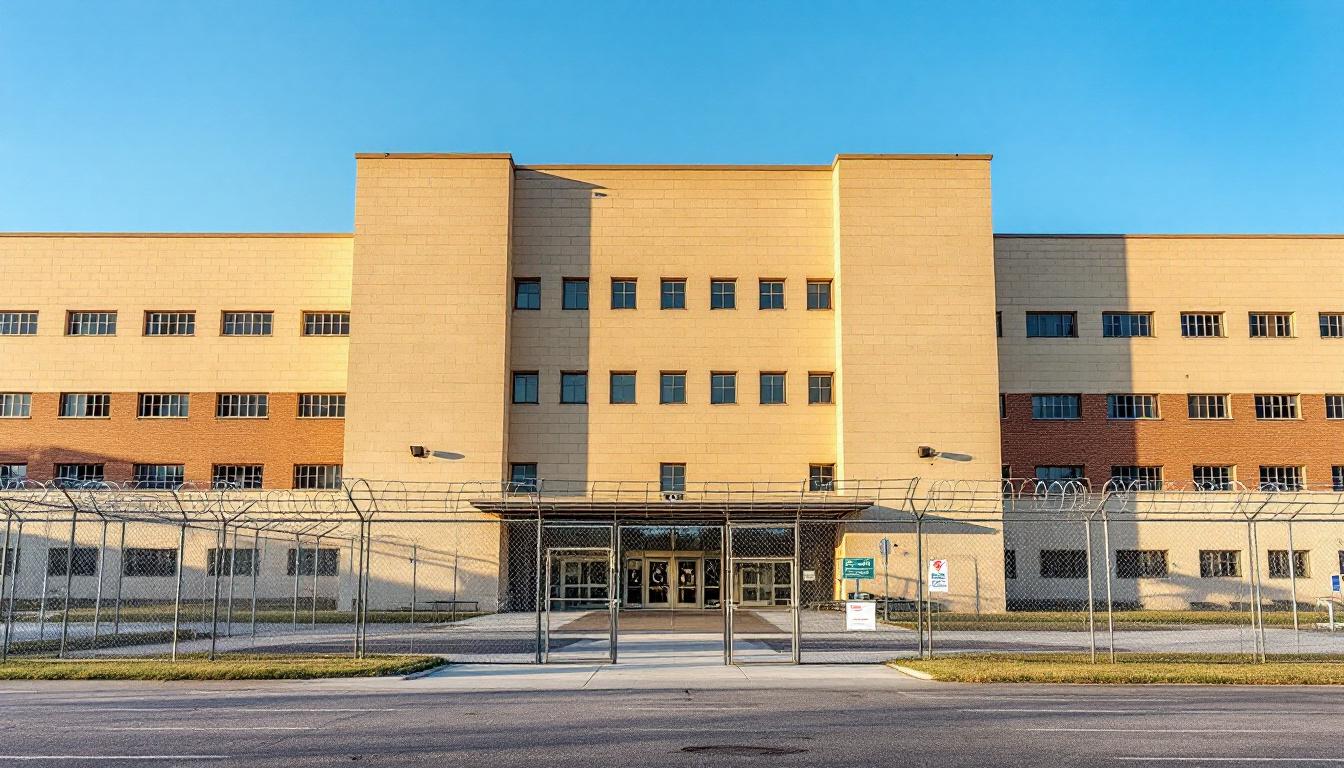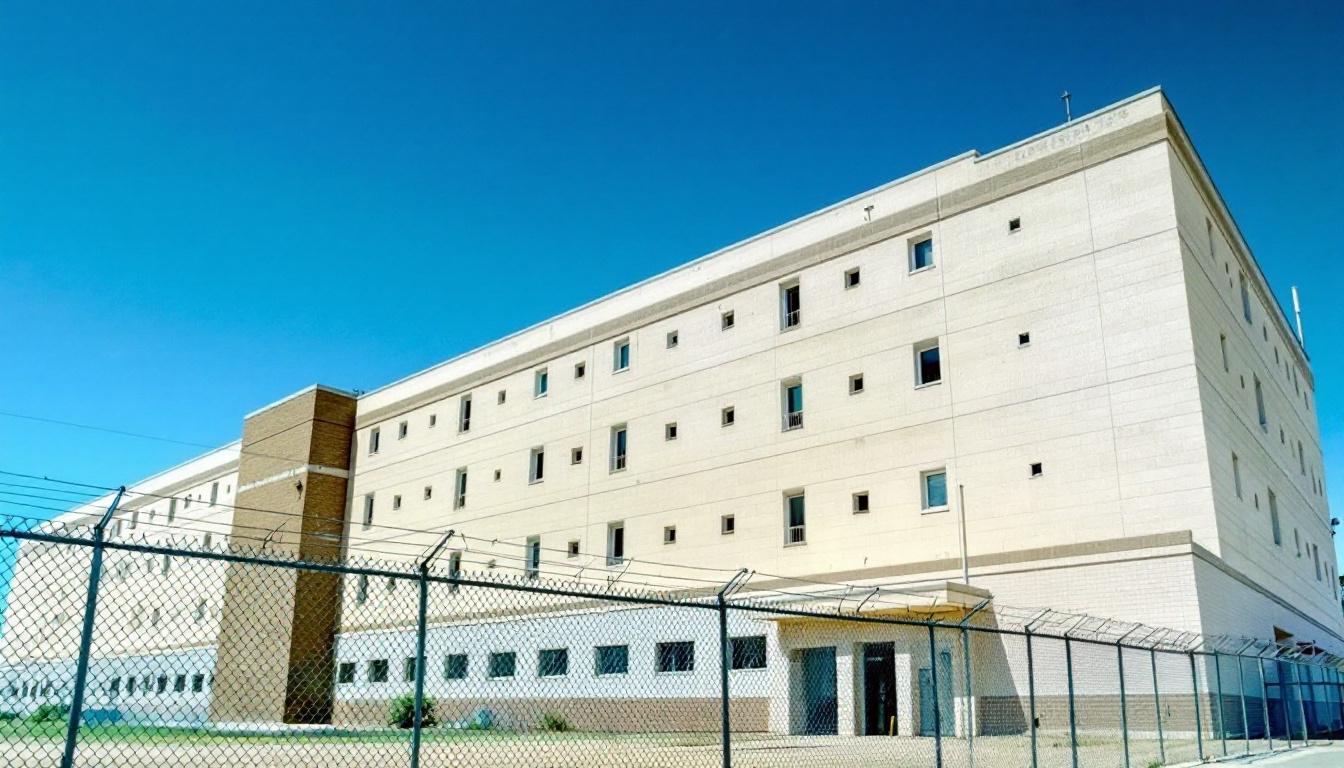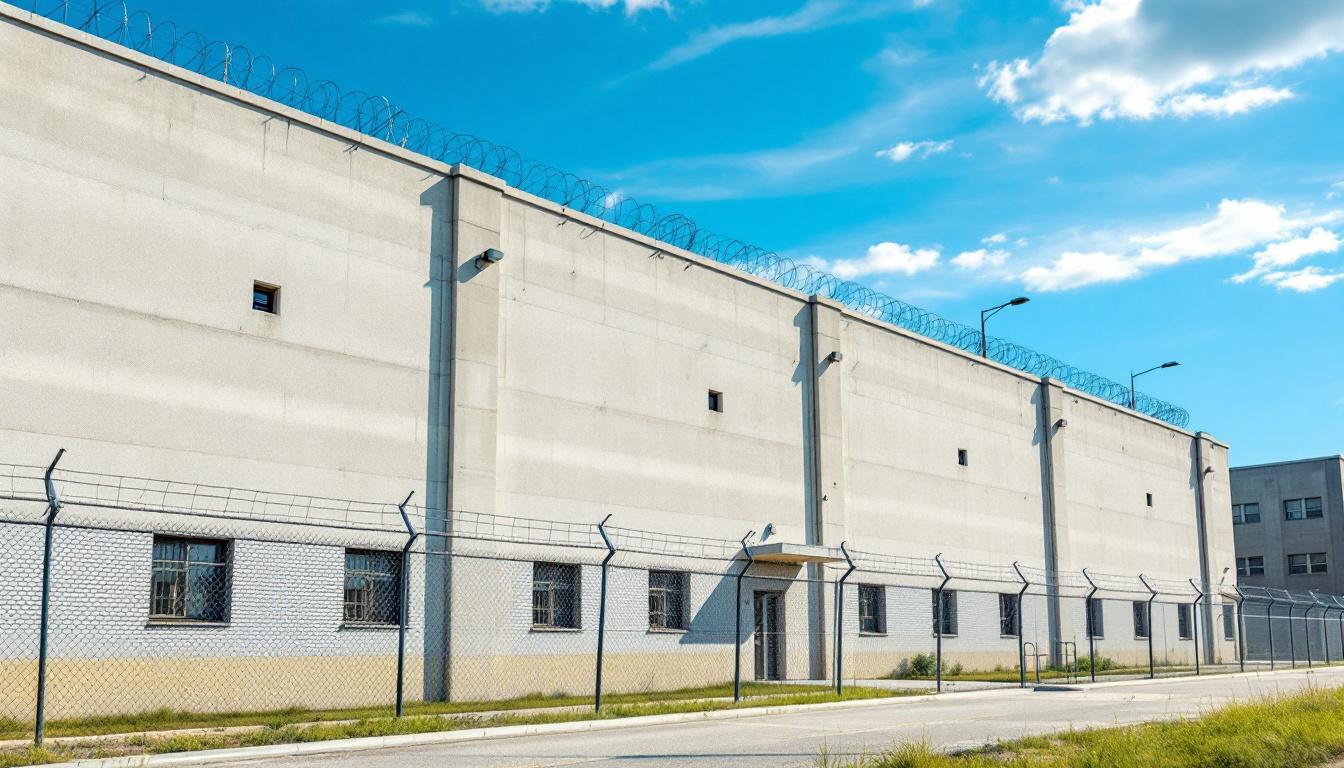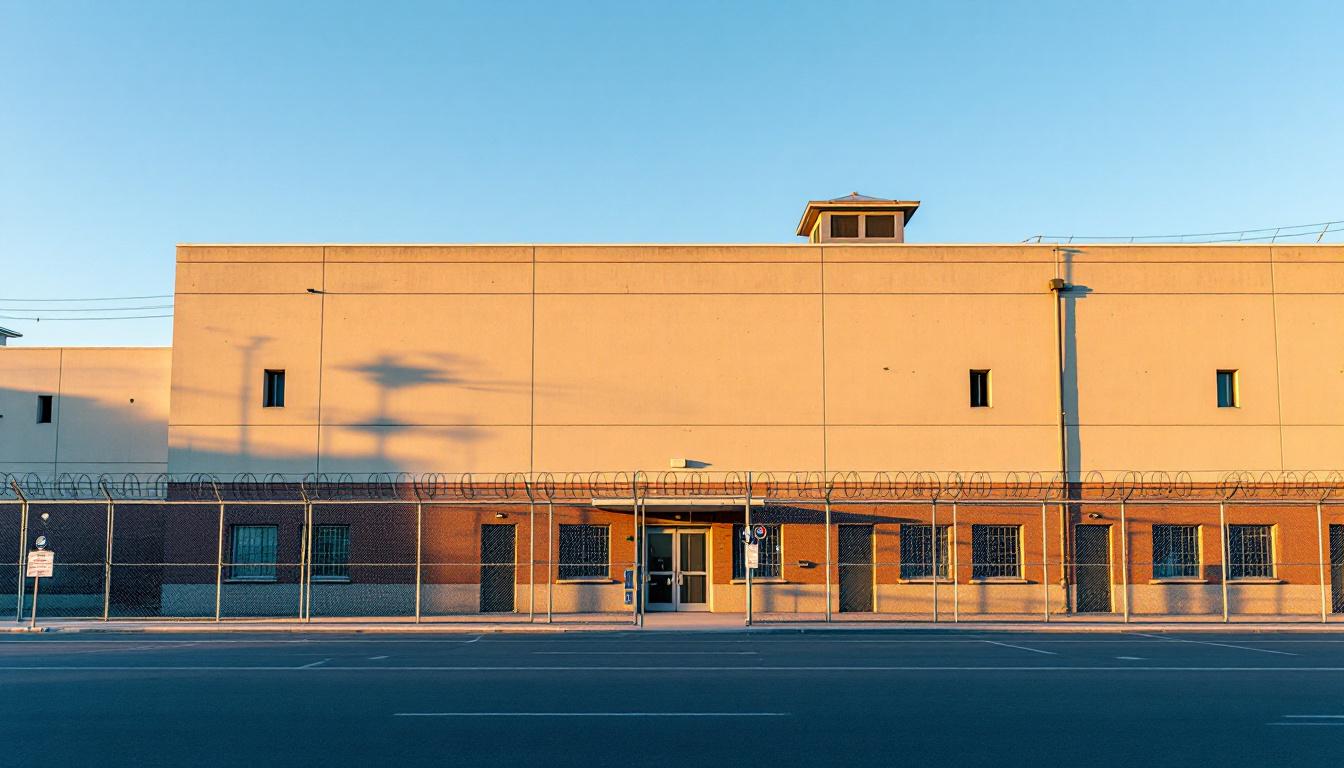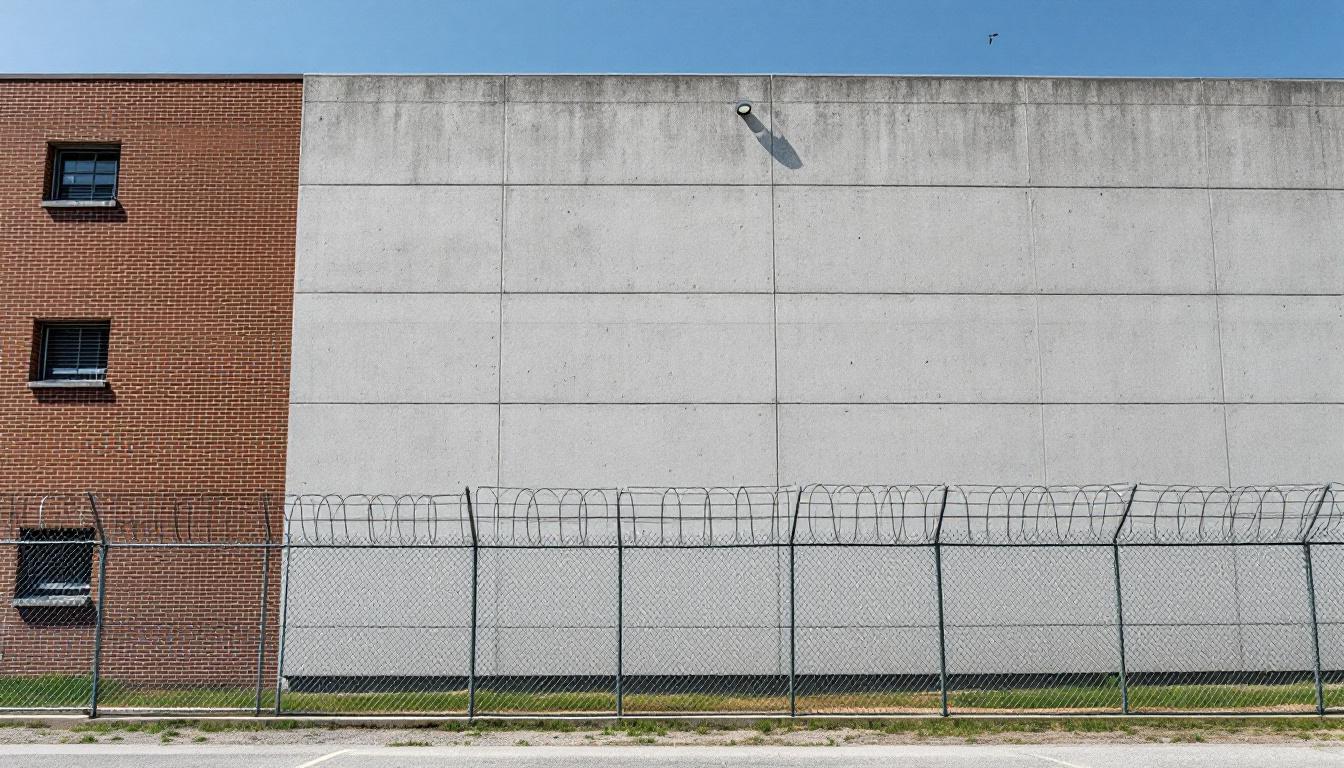
Quick Navigation
How to contact an inmate at Jefferson City Correctional Center
This comprehensive guide will walk you through how to connect with an inmate at Jefferson City Correctional Center. Follow the steps below to find an inmate and send letters and photos:
- Search for the inmate using our search tool below
- Create your account or log in to Penmate
- Write your message (up to 6,000 characters)
- Send instantly - inmates receive printed copies daily
Find an Inmate
Search for an inmate to start communicating today
Tip: You can search by first name, last name, or inmate ID number
To contact a person at Jefferson City Correctional Center start by searching for the person on the official facility website. Perform a search by following these steps:
- Step 1: Enter their first name and last name into the search form and click "Search"
- Step 2: Locate their inmate record
- Step 3: Write down their Inmate ID and any housing information provided
Important! Be sure to enter the person's full name. Nicknames should not be used.
How to Send Messages to Inmates

You can use your phone or computer to send emails, letters, and photos to an inmate. Messages are sent electronically to inmate tablets or kiosks at the facility. If you would like to send a message, start by searching for an inmate at Jefferson City Correctional Center.
Sending Photos and Postcards

A great way to send love and support to a loved one at Jefferson City Correctional Center is to send photos and postcards. It only takes a few minutes to send photos from your phone and it makes a huge difference. You can also mail postcards with words of support and inspiration, or design your own postcard for special moments like birthdays and holidays.
Important! Be sure not to send any explicit photos or they may not be approved by the facility. You can also use a photo printing app like Penmate to make sure your photos are printed at the correct size (4x6 or 3x5) and are mailed according to the rules and regulations of Jefferson City Correctional Center.
Frequently asked questions about Jefferson City Correctional Center
-
How long does it take to deliver a message?
If you're sending an email message your letter is usually delivered within 24-48 hours. For messages sent via mail you should expect delivery within 3-7 days. All messages will need be approved by Jefferson City Correctional Center.
-
How much does it cost to send a message to Jefferson City Correctional Center?
You can send a message free using your phone or mail a message via USPS for the price of a $0.60 stamp and envelope. You can also purchase credits or e-stamps from services starting at $1.99.
-
What services can I use to contact an inmate at Jefferson City Correctional Center?
Penmate
You can use Penmate to send letters and photos to an inmate from your phone. It's an easy way to stay in touch during your loved one's incarceration. Use the inmate locator to find an inmate's location and contact information, then you can send messages within a few minutes.
Securus messaging
Securus may be another option for communicating with an inmate at Jefferson City Correctional Center. You can create a friends and family account and purchase credits to send messages. All messages will be reviewed and must be approved by the facility.
JPay
Some county jails and state prisons may support sending messages with JPay. You must register an account with the system, find your loved one, and purchase stamps to send messages. For some locations you can also attach photos.
Smart Jail Mail
You may also check if Smart Jail Mail is available at Jefferson City Correctional Center. Smart Jail Mail is operated by Smart Communications and has contracted with some state and county jails. After purchasing credits, your messages and photos are sent to the facility, printed out, and then handed out to your loved one.
-
What is the mailing address of Jefferson City Correctional Center?
Mailing address:
Jefferson City Correctional Center
8200 No More Victims Rd
Jefferson City, MO 65101
Phone: (573) 751-3224Business hours:
- Monday: Closed
- Tuesday: Closed
- Wednesday: Closed
- Thursday: Closed
- Friday: 9:30 AM – 1:30 PM
- 2:30 – 6:30 PM
- Saturday: 9:30 AM – 1:30 PM
- 2:30 – 6:30 PM
- Sunday: 9:30 AM – 1:30 PM
- 2:30 – 6:30 PM
-
What are the visiting hours at Jefferson City Correctional Center?
Visiting hours at Jefferson City Correctional Center vary by housing unit and security level. Generally, visits are scheduled on weekends and holidays, with some facilities offering weekday visits. Contact the facility directly at (573) 751-3224 or check their website for the current visiting schedule. Visits typically last 30-60 minutes and must be scheduled in advance.
-
What items are prohibited when sending mail to Jefferson City Correctional Center?
Prohibited items typically include: cash, personal checks, stamps, stickers, glitter, glue, tape, staples, paperclips, polaroid photos, musical or blank greeting cards, hardcover books, magazines with staples, and any items containing metal or electronics. Only send letters on plain white paper with blue or black ink. Photos must be printed on regular photo paper (no Polaroids). Always check with Jefferson City Correctional Center for their specific mail policies.
-
How do I send money to an inmate at Jefferson City Correctional Center?
You can send money to an inmate at Jefferson City Correctional Center through several methods: 1) Online using JPay, Access Corrections, or the facility's approved vendor, 2) Money orders mailed directly to the facility with the inmate's name and ID number, 3) Kiosks located in the facility lobby, or 4) Over the phone using a credit or debit card. Fees vary by method, typically ranging from $2.95 to $11.95 per transaction.
-
Can I schedule a video visit with an inmate at Jefferson City Correctional Center?
Many facilities now offer video visitation as an alternative to in-person visits. At Jefferson City Correctional Center, video visits may be available through services like Penmate, Securus Video Connect, GTL, or ICSolutions. Video visits typically cost $10-20 for 20-30 minutes and must be scheduled in advance. You'll need a computer or smartphone with a camera and reliable internet connection. Contact the facility for their specific video visitation policies and approved vendors.
-
What identification do I need to visit an inmate at Jefferson City Correctional Center?
All visitors must present valid government-issued photo identification such as a driver's license, state ID, passport, or military ID. Minors must be accompanied by a parent or legal guardian who can provide the minor's birth certificate. Some facilities require visitors to be on the inmate's approved visitation list, which may require a background check. Contact Jefferson City Correctional Center for specific ID requirements and visitor approval procedures.
-
How can I find out an inmate's release date?
To find an inmate's release date at Jefferson City Correctional Center, you can: 1) Use the online inmate search tool if available, 2) Call the facility's records department, 3) Contact the inmate's case manager or counselor, or 4) Have the inmate provide this information during a call or visit. For privacy reasons, some facilities only release this information to immediate family members.
Facility Overview
Contact Information
Jefferson City Correctional Center8200 No More Victims Rd
Jefferson City, MO 65101
Phone: (573) 751-3224
Official Website

About Jefferson City Correctional Center
Comprehensive educational programming, vocational training opportunities, and mental health services form the foundation of what Jefferson City Corr Center, MO delivers to individuals within Missouri's correctional system. Located in Hillsboro, this MO correctional facility operates with a dual commitment to maintaining secure operations while fostering meaningful pathways toward personal development and community reintegration.
The facility typically houses individuals serving various sentence lengths, offering a structured environment where security protocols work alongside rehabilitation-focused initiatives. Educational opportunities may include basic literacy programs, GED preparation, and skills-based training designed to enhance employment prospects upon release. Mental health counseling, substance abuse treatment programs, and life skills workshops often complement these academic offerings, creating a holistic approach to addressing the diverse needs of the incarcerated population. The individuals services provided generally emphasize both accountability and growth, recognizing that successful reentry requires comprehensive preparation.
Within Missouri's broader correctional landscape, this Hillsboro facility contributes to the state's commitment to balancing public safety with rehabilitation goals. The correctional facility typically maintains connections with community organizations and potential employers, helping bridge the gap between incarceration and successful community reintegration. Through structured daily routines, work assignments, and program participation, individuals may develop the tools and mindset necessary for positive change, while the facility upholds the security measures essential for staff and public safety throughout the Midwest region.
Programs & Services
From foundational literacy to advanced vocational certifications, the breadth of developmental opportunities at Jefferson City Correctional Center reflects a commitment to addressing the diverse needs of incarcerated individuals. This comprehensive approach recognizes that meaningful rehabilitation requires multiple pathways for growth and skill development. The facility typically structures its programming to create interconnected opportunities that build upon one another, allowing individuals to progress through various levels of educational and personal development during their incarceration.
Educational opportunities often form the cornerstone of programming, with basic literacy and GED preparation serving individuals who may have previously lacked access to formal education. Computer literacy training typically complements these foundational programs, providing essential digital skills that have become increasingly important in today's workforce. Also available are vocational training opportunities that may include trades such as welding, carpentry, or automotive repair, designed to provide individuals with marketable skills upon release. These hands-on programs often utilize modern equipment and industry-standard practices to ensure relevance in the current job market.
Employment readiness services typically work in conjunction with educational and vocational programming to prepare individuals for successful reintegration into their communities. These opportunities may include resume writing workshops, interview preparation, and job search strategies. Also integral to the facility's comprehensive approach are therapeutic services, including substance abuse treatment programs that address underlying addiction issues and mental health counseling that supports overall psychological well-being. This multi-faceted programming structure recognizes that successful reentry often depends on addressing not just skill deficits, but also the personal challenges that may have contributed to criminal behavior.
Daily Life & Visitation
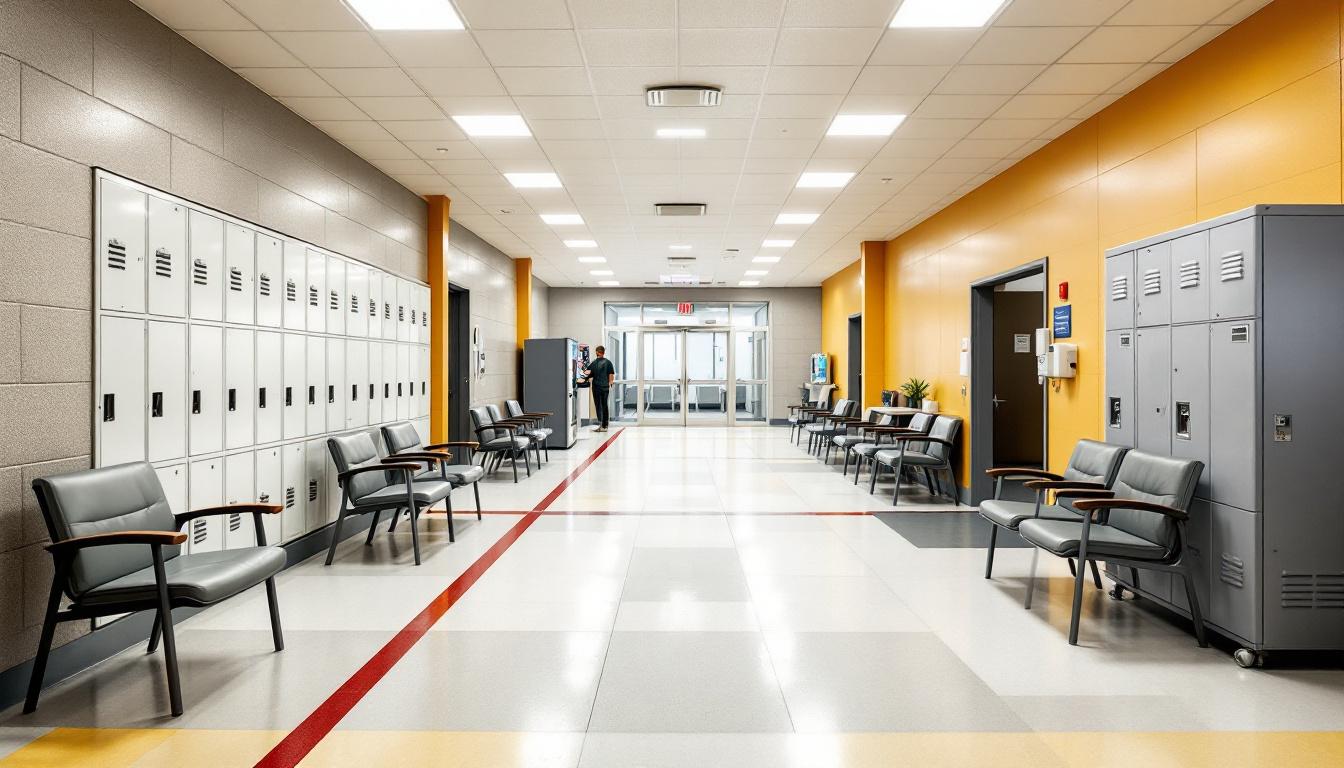
The sound of morning announcements echoes through housing units as individuals at Jefferson City Correctional Center begin another structured day. At present, the facility actively maintains a routine that typically begins in the early morning hours with count procedures and preparation for meals. Daily schedules generally include designated times for meals, work assignments, and programming activities, though the specific timing may vary based on housing unit assignments and security requirements.
Living accommodations typically consist of shared cells or dormitory-style housing units, depending on classification levels and available space. Individuals generally have access to basic personal property allowances and may purchase additional items through the commissary system. Meals are usually served in designated dining areas at scheduled times, with menu options that aim to meet basic nutritional requirements. However, dietary accommodations may be available for individuals with documented medical or religious needs.
Also important to daily life are the various programs and activities that offer structure and skill development opportunities. Work assignments within the facility may include kitchen duties, maintenance tasks, or other institutional operations that help individuals develop job skills while contributing to facility operations. Recreation time typically includes access to outdoor areas when weather permits, along with indoor activities and exercise opportunities. However, family connections remain vital, with visitation policies generally allowing for scheduled visits and phone communication privileges that help individuals maintain important relationships with loved ones on the outside.
Ready to Connect?
Start communicating with your loved one today
Search for an Inmate
